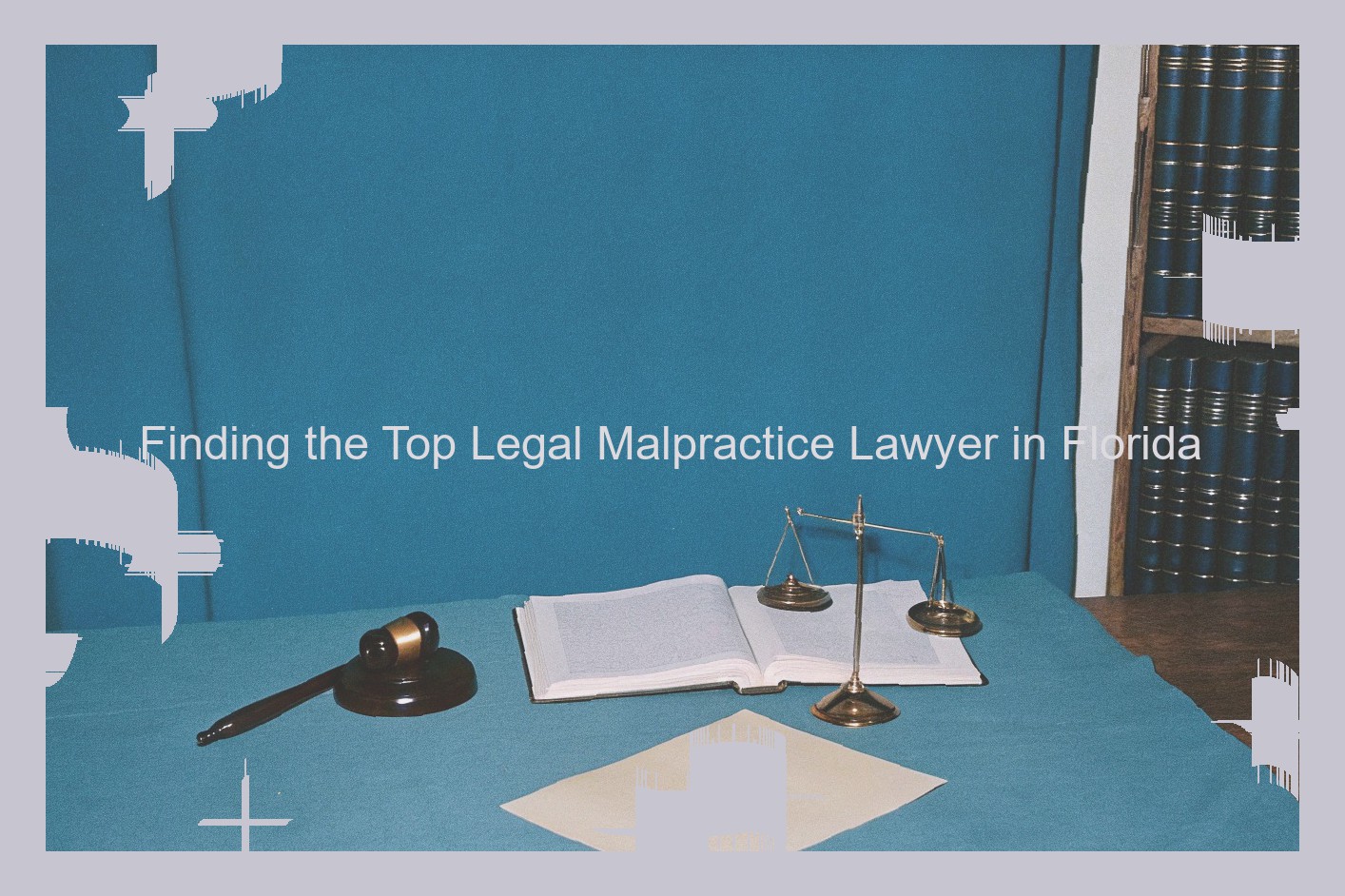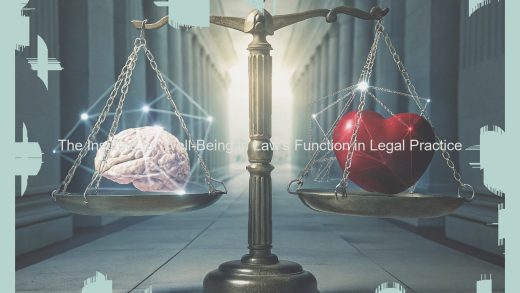What is Legal Malpractice?
Legal Malpractice, also known as lawyer malpractice, is a major source of claims in Florida and across the nation. Legal malpractice actions are lawsuits filed against an attorney for breaches of the standards of care. The Florida Bar rules allow lawyers to debate the issues of each case in the internal dispute resolution process.
Legal malpractice actions typically arise from the work lawyers perform and the services provided for clients. Issues of trial strategy and litigation decisions often lead to legal malpractice claims. It is probably safe to say that the greatest number of legal malpractice cases arise from the filing of the action itself, failure to proceed with the matter, or a settlement that was unfavorable to the client.
For example, the case of Wolfe & Wood, Inc. v. Allistor, Inc., 698 So.2d 752, involved a suit for fraud and legal malpractice. In this case, the plaintiff had contacted the law firm of Wolfe and Wood to represent them in a real property matter. The plaintiff wanted a particular type of deed filed, but when the deed was prepared, it was of a different nature. The WWE attorneys filed the deed anyway. A year later, they removed the deed from recording and created a new deed to satisfy the client’s request. This second deed was also filed. The end result was that the client ended up with neither type of deed and the other party was able to successfully sue them. Plaintiff then sued the lawyers for legal malpractice and loss of their case.
Legal Malpractice is defined broadly under the case of Fleischer v. James Aubert, P.A., 754 So.2d 63. In this case, the court observed that: A cause of action in legal malpractice may be founded on three distinct theories. The first theory is based on an alleged breach of contract of employment with the lawyer. To prevail , the plaintiff must produce evidence of a distinctly identifiable duty owed by the lawyer to the client. Such duties may arise out of the attorney-client relationship. If plaintiff can establish a breach of this duty, there may be liable for damages….. An action for breach of fiduciary duty involves all aspects of the contract of employment plus other duties imposed by law. In contrast to the first theory, the focus is upon the specific facts of the case demonstrating some conduct by the attorney which is contrary to the interests of the plaintiff. The third theory, an action for negligence, requires the plaintiff to establish that the lawyer failed to use the degree of care, skill and diligence of … reasonably careful lawyers… " Id. at 66.
A recent case involving legal malpractice was brought as a federal action. In the case of Scarbrough v. Holder – United States Court of Appeals for the 11th Circuit, 570 F.3d 1277, 2009 WL 960313, there was a claim for legal malpractice against a lawyer arising out of the filing of an application for asylum. The Court of Appeals for the Eleventh Circuit ruled that since the United States had a strong interest in protecting its diplomatic relations and appointing counsel to defend claims against its employees does not inherently bias judges against such suits, the explanation of the disqualification was not a racial comment and upholding the disqualification was not error.
It is always advisable to avoid legal malpractice claims by pursuing all available options in a given matter. For example, if you are unhappy with the results of a contract negotiation, it is best to address the issue with your attorney before going to court.

The Need for a Legal Malpractice Lawyer
Legal malpractice is a very serious issue, and if you believe your current lawyer is not competently representing you, you need to hire a legal malpractice attorney. Legal malpractice has its roots in negligence; it involves a situation in which you may have been harmed because your attorney failed to represent you adequately and competently. This does not mean that you will automatically win a legal malpractice claim, because you will still need to prove that your attorney’s negligence caused you financial harm as well as the extent of that harm.
You also will need to prove that you would have obtained a favorable result had the matter involved a competent attorney. However, hiring an attorney with experience in Florida legal malpractice cases is critical. He or she will know how to properly present the evidence in your case. The amount of recovery can range from a couple of thousand dollars to millions of dollars, depending on the case tainted by attorney negligence. The financial success or failure of your case will depend upon the knowledge and experience of your Florida legal malpractice attorney.
Many legal malpractice cases are based upon three common causes of action:
• Breach of contract
• Breach of fiduciary duty
• Negligence
Florida law has imposed a four-year statute of limitations on legal malpractice actions, so the time to file your suit is crucial. Typically, time starts on the date when you discover the legal malpractice; however, if fraud was involved, the 4-year statute limitation does not begin to run until the breach is discovered. Time limits are extremely important in legal malpractice cases, and your attorney must file the complaint within the four-year limit to ensure that you are not barred from filing it. An experienced lawyer understands this, and knows how to present the information needed over the statute of limitations to ensure that justice is served.
Choosing Legal Malpractice Attorneys in Florida
Selecting an attorney after you think you’ve been harmed by a prior lawyer is difficult. Looking through the yellow pages for legal malpractice attorneys in Florida will probably not be helpful. We suggest that you first read the lawyer testimonials on the Florida Bar website and also check out the Florida Legal Malpractice Blog. There are other sources for information, including Avvo, and lawyer rating services.
Many times lawyers will offer free consultations; sometimes they charge. Regardless, as you set up the initial meeting, try to find out whether any payment will be required at the time of the initial consultation. When you meet with the lawyer, go over your situation and background information. Is the lawyer knowledgeable and then interested and attentive enough to follow up with an informed recommendation? It might take several trips with several lawyers to feel comfortable about hiring one.
Ultimately, it will be your decision to hire a lawyer and with whom you feel comfortable. A lawyer who counsels you against filing a case, or taking the issue to mediation or arbitration as opposed to trial, might be the right lawyer for you, and another lawyer who seems to be ready to file suit the next day might not be right for you. If the relationship does not work out, it can be terminated (but not without immediate and likely substantial harm). Finally, the lawyer on retainer will be absolutely critical to developing the case, performing the legal due diligence, obtaining and interviewing witnesses, both lay and expert, and deciding whether the case should be closed down, or fought on.
Legal Malpractice Law in Florida
One of the most important things to know about legal malpractice law in Florida is that the courts are very strict about the statute of limitations. It used to be a year, but now, with some exceptions, it is almost exact two years. However, if the attorney moves to withdraw, the clock begins to tick. So does it begin to tick when you first realize the error-or does it not begin to run until the client knows it was malpractice? Will it be the Attorney Error, or the Client’s failure to understand the error? These are factual issues all too often left unresolved at the outset, leading to dismissal of the case.
Florida has a continuous representation rule, which mandates that the statute does not begin to run until the lawyer has actually wound up the matter and formally withdraw. The rule is an equitable one, considering that attorneys cannot expect their clients to sue them.
The Process for a Legal Malpractice Claim
Just as in standard litigation, legal malpractice claims are initiated with the filing of a complaint in an appropriate court: state or federal. Generally, depending on the amount of damages sought, the state trial court will be the most appropriate forum. When a malpractice lawsuit is filed against an attorney, and allocated filed, some jurisdictions will refer the matter to a grievance board or similar panel to deal with allegations of ethical violations. Florida law requires an Affidavit of Counsel to be filed with all complaints alleging legal negligence—this will include legal malpractice claims. The Affidavit of Counsel must identify the error alleged to have occurred, and either state that the error is so apparent that it does not require expert testimony, or identify the expert that will testify about the alleged malpractice. This is a significant difference between a claim for legal malpractice as opposed to a claim against any other professional as defined under the relevant statute . After the Affidavit of Counsel is filed, the defendant has 60 days to respond or answer-in some cases 90 days. For a legal malpractice claim, the attorney will file a motion to dismiss pursuant to Rule 12(b)(6) of the Florida Rules of Civil Procedure. In the motion, the attorney will argue that, as a matter of law, the matter should have been successfully concluded and that there is no award available to the client. If the motion is granted, the Plaintiff may not pursue the claim unless the court grants leave to file an amended complaint-which is equally as likely as never being granted. If the motion to dismiss is denied, the attorney will file a Motion of Summary Judgment, again arguing that, as a matter of law, the claim must fail because the matter could have been successfully concluded. Again, there is very little chance that the motion will be denied.
Results from Legal Malpractice and the Compensation
The expectancy of any potential outcome in a legal malpractice case should start with understanding that Florida law does not provide for punitive damages in a legal malpractice case. A jury may not assess punitive damages against an attorney because we no longer have criminal malpractice. The question of jury nullification aside, the only potentially available compensation is for money damages. Money damages are tied to provable damages, and provable damages include the amount necessary to put the client in as good a financial position as when the error occurred. Hence it is mandatory to prove the economic loss from the error. If you cannot prove the underlying case and the damages in both cases, then you are faced with proving legal malpractice damages. If the errors were serious, not to mention, and there was insufficient time to mitigate the losses, a full blown forensic economic analysis is required. The more money involved, the more likely a forensic economic analysis will be performed, and (of course) the attorney through his insurance company or law firm will be paying for the analysis, the more likely the analysis will be supported.
How to Prevent a Legal Malpractice
As mentioned, there is a difference between malpractice and negligence. In a legal malpractice case, it is important to show that the attorney violated his duty of care through, for example, a missed statute of limitation. However, a client can help herself avoid legal malpractice by being diligent. While we are both states away from one another, sometimes the best place to begin is finding a good attorney in the client’s current locale.
Florida Statute sets out how an attorney can charge a retainer. Be sure you understand the arrangement. The discussion with the lawyer before the retainer is signed is extremely important. If you have an idea that there is some threat of lawsuit, you should be certain you get the retainer situation straight. Pre-litigation legal claims are not as complex as litigation issues. The claims arise because of errors or omissions by the attorney in foreign jurisdiction, or the attorney did not know the law of the other state. The errors or omissions must be significant enough to deter the claimant from her desired objective. Not every attorney is a worthy ‘lawyer’ or ‘advocate’ for you , choose wisely. There are ‘advocates’ who do not know the law, are reluctant/willing to learn new law, do not have the time to spend on your case, or are more ‘concerned’ with convincing you of something, than in learning and understanding the facts of your case. If something isn’t adding up, ask questions. If you have an idea a mistake is being made, question the lawyer about it. There is nothing wrong with getting a second legal opinion. If the attorney doesn’t want you to speak with anyone else, ask yourself why? Stay informed about the status of your own case. Ask questions about anything you do not understand. Understand the situation you are in as best as you can, and how the statutes and/or case law apply to you and your situation. Some lawyers are adamant that the client not get involved in the case directly in any way. With few exceptions, this policy is not in the client’s best interests. Ask lots of questions.



